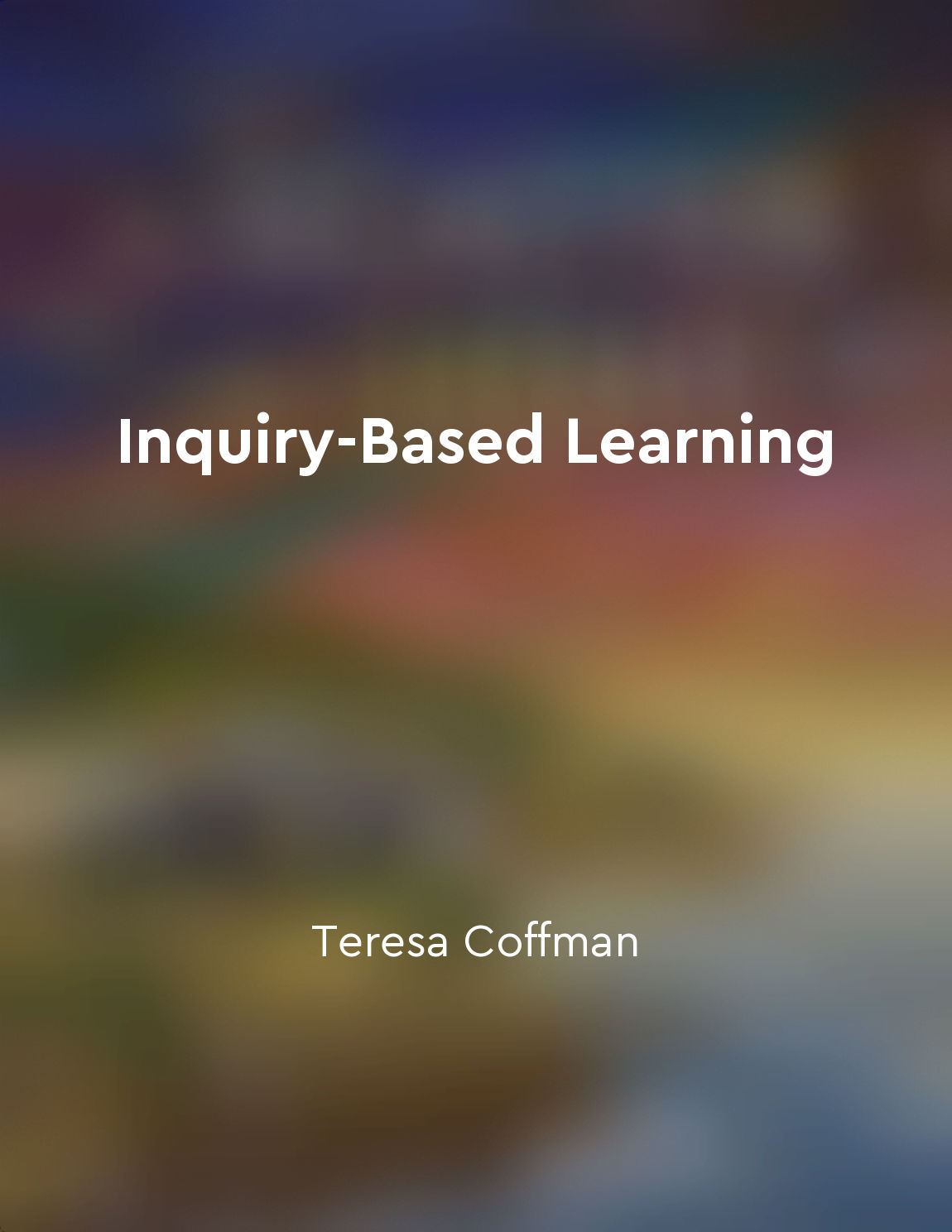Students develop research skills from "summary" of Inquiry-Based Learning by Teresa Coffman
Students engaged in inquiry-based learning develop research skills as they explore questions, problems, or scenarios that require investigation. Through this process, students learn to formulate their own questions, seek out relevant information, and evaluate sources for credibility and accuracy. In doing so, they develop critical thinking skills that are essential for success in today's information-rich society. As students delve into a topic of interest, they learn to navigate various sources of information, including books, articles, websites, and databases. They learn to synthesize information from multiple sources and to cite their sources appropriately. This not only teaches students how to conduct research ethically, but also helps them develop their writing and communication skills. Inquiry-based learning encourages students to think creatively and to approach problems from multiple perspectives. By engaging in open-ended investigations, students learn to think outside the box and to consider diverse viewpoints. This fosters a spirit of curiosity and a willingness to explore complex issues in depth. Research skills developed through inquiry-based learning are transferable to other areas of study and to real-world contexts. Students learn to apply their research skills to new problems and situations, enabling them to become lifelong learners who are capable of adapting to changing circumstances. This empowers students to take ownership of their learning and to pursue their interests with confidence and independence.- Students become more engaged and motivated learners. They gain a deeper understanding of the subjects they study and develop a passion for learning that extends beyond the classroom. Ultimately, inquiry-based learning equips students with the skills and mindset they need to thrive in a rapidly changing world.
Similar Posts
Reallife applications of scientific theories are discussed
The application of scientific theories in real life is a fundamental aspect of understanding the relevance and importance of sc...
Role of literature in society
Literature plays a crucial role in shaping the society we live in. It is not merely a form of entertainment, but a medium throu...
Uncover bias
Bias can be a tricky thing to identify, especially when it is lurking beneath the surface, hidden from view. It is important to...
Learning history helps us understand the present
Learning history is not just about memorizing dates and facts. It is about understanding how the past has shaped the world we l...
Questioning established beliefs
The act of questioning established beliefs is a fundamental aspect of intellectual inquiry. It is through this process that ind...

Experiment with new study strategies to find what works best for you
When it comes to studying, it's important to remember that one size does not fit all. What works well for one person might not ...
Provides indepth analysis of each topic
The content goes beyond the surface level and delves deep into every subject matter covered. Each topic is thoroughly examined ...
Cultivate a sense of wonder
The world is full of mysteries waiting to be explored, wonders waiting to be discovered. It is up to us to open our eyes and mi...
Updated content and latest question formats
The material in this book has been meticulously updated to reflect the latest changes in the CBSE exam pattern and syllabus. Th...
Visualizing outcomes can guide decisionmaking in problem-solving
Visualizing outcomes is a powerful tool that can help in guiding decision-making during problem-solving processes. By being abl...


